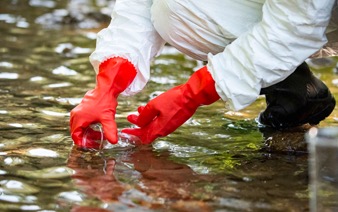The Law Firm of Marc L. Shapiro is representing individuals diagnosed with cancer or suffering from other medical conditions who lived or worked at Camp Lejeune, North Caroline between 1953 and 1987. This includes service members, their family members, and civilians who worked at Camp Lejeune during the relevant time period.
What is the Camp Lejeune Justice Act of 2022?
This bill allows certain individuals to sue and recover damages for harm from exposure to contaminated water at Camp Lejeune in North Carolina between August 1, 1953, and December 31, 1987. This action is available only to individuals who were exposed to contaminated water for at least 30 days. Passed by the House in March and by the Senate in late June, provides the ability of Camp Lejeune claimants to file a lawsuit against the U.S. government for failing to warn the residents and workers of water contamination.
Who Is at Risk for Camp Lejeune Toxic Water Symptoms?
Those who lived or worked at U.S. Marine Corps Base Camp Lejeune between 1953 and 1987 may be at risk for health problems stemming from Camp Lejeune water contamination, like cancer, heart disease, and more. These conditions can lead to many painful symptoms and even death.
It is important to realize that some conditions may be symptomless, making it difficult to know whether you have been harmed. Other chronic conditions cause lifelong issues, leaving victims unaware of the connection between their health problems and the toxic chemicals.
What Chemicals Were in Camp Lejeune Water?
The Agency for Toxic Substances and Disease Registry (ATSDR) has been analyzing the Camp Lejeune disaster for decades. Through extensive modeling, the organization was not only able to uncover how the water was being contaminated but also which chemicals were present in the water supply.

ATSDR determined that the Camp Lejeune water contained:
- Benzene
- Dichloroethylene (DCE)
- Tetrachloroethylene — also known as perchloroethylene (PCE)
- Trichloroethylene (TCE)
- Vinyl chloride
- Other contaminants
What Are the Health Effects of Camp Lejeune Water Contamination?
There are many Camp Lejeune water contamination health conditions. This is because victims range in age, gender, duration of exposure, and many other factors. As a result, Camp Lejeune water contamination symptoms depend on the illness someone develops.
Camp Lejeune water contamination illnesses include:
- Aplastic anemia (when the body stops making enough new blood cells)
- Birth defects
- Hepatic steatosis (fatty liver)
- Various types of cancer (adult leukemia, bladder cancer, kidney cancer, and liver cancer)
- Heart disease
- Myelodysplastic syndromes (disruption of blood cell production)
- Neurobehavioral effects
- Neurological disorders, such as Parkinson’s disease
- Renal toxicity (kidney damage)
- Scleroderma (hardening of the skin and connective tissues)
- Additionally, pregnant women who lived on the base or visited frequently were at greater risk for miscarriage or stillbirth. Others had problems with female infertility.
How Long Do I Have To File A Lawsuit For Camp Lejeune?
Individuals have 2 years from August 10, 2022, the date the legislation was enacted, to join the Camp Lejeune lawsuit. However, individuals who may qualify are encouraged to seek immediate legal assistance. Contact our experienced Camp Lejeune Justice Act lawyers today, we can help.

